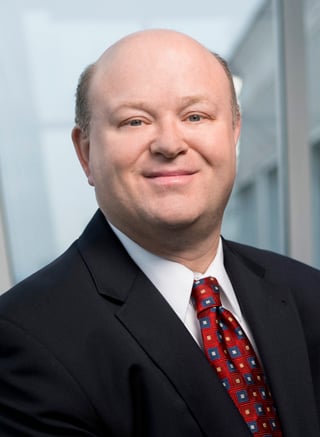CMS Changes Course: Increases Medicare Reimbursement Rates for 2023 Fiscal Year
Long Term Care & Senior Housing Update
On Friday, July 29, 2022, the Centers for Medicare & Medicaid Services (CMS) issued its 2023 Skilled Nursing Facility (SNF) Prospective Payment System (PPS) Final Rule on 2023 Medicare rates for skilled nursing facilities (SNFs). The final rule will increase 2023 fiscal year Medicare reimbursement rates for SNFs by 2.7% in the aggregate. SNF operators welcomed the final rule as relief to a myriad of challenges created by the COVID-19 pandemic from which they continue to recover.
With this 2023 Medicare rate increase, CMS reversed its initial proposal to reduce Medicare rates by 0.7% for the upcoming fiscal year as published in its proposed rule. The reversal was due, in part, to heavy pushback CMS received during the 60-day notice and comment period for the proposed rate cut. Thousands of skilled nursing administrators, directors of nursing, and regional and corporate staff submitted comments in opposition to the proposed rate cut. Skilled nursing providers argued the proposed rate cut would be detrimental to skilled nursing facilities in the wake of the fallout created by the COVID-19 pandemic. SNFs told CMS they needed more resources, not less, as facilities across the country continue to struggle with staffing shortages, inflation, and occupancy numbers still recovering compared to pre-pandemic censuses. The increase in facility costs to attract and maintain staffing at a level necessary to operate is one of the, if not the greatest, challenges long term care facilities face today. Many facilities report fixed cost increases of 10% to 30% primarily due to increased staffing costs. Due to increased operational costs, CMS’s final rule is a victory for skilled nursing facilities as they attempt to bring revenue and cost lines closer together and return to pre-pandemic levels.
CMS’s Impending Minimum Staffing Proposal
SNFs cleared one major short-term hurdle with the Medicare rate increase for 2023, but the next challenge quickly approaches. The industry expects CMS to propose and establish new minimum staffing requirements through a proposed rule expected sometime in the spring of 2023. CMS’s forthcoming staffing rule is part of President Biden’s “Nursing Home Initiative” announced in February 2022 as a comprehensive set of reforms to improve safety and quality of care in nursing homes. As nursing home staffing shortages continue, and operational costs remain elevated due to inflation, nursing home providers and industry leaders are concerned facilities will be unable to comply with such regulations, especially if unfunded.
CMS has already announced its methodology and process for developing the proposal to establish new minimum staffing requirements. CMS will lead the inquiry aimed at determining the minimum level and type of staffing necessary to ensure quality care in nursing homes. CMS will rely on a new study being conducted to help determine appropriate staffing levels, consisting of four parts: a literature review, nursing home site visits, quantitative analyses, and cost analyses. The study is expected to heavily focus on nursing staff, specifically registered nurses, licensed practical nurses, licensed vocational nurses, and certified nursing assistants.
CMS is already hearing from SNF providers about the proposed rule. David Wright, director of the Quality Safety & Oversight Group at CMS, fielded provider questions and concerns at an October industry meeting in Nashville. Nursing home providers are concerned that a seemingly one-size-fits-all rule is not the correct approach to determine staffing, as nursing home care continues to evolve. Providers are very concerned that given the already significant challenges with providers’ inability to recruit and retain workers, a new standard could set up an impossible compliance problem. Many nursing home providers also believe CMS should be factoring in non-nursing positions to its proposed minimum staffing requirements, such as therapists, psychologists, social workers, culinary staff and other team members who provide daily care to residents. Whether CMS will heed nursing home providers’ pleas, and factor in care provided by non-nursing professionals to its proposal this Spring, awaits to be seen.


